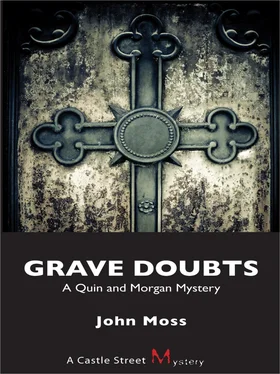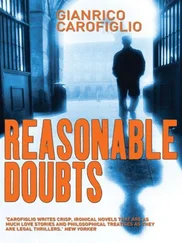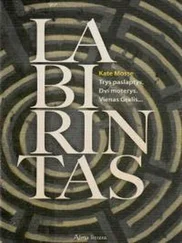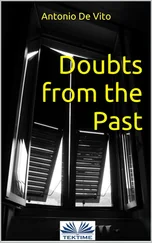John Moss - Grave doubts
Здесь есть возможность читать онлайн «John Moss - Grave doubts» весь текст электронной книги совершенно бесплатно (целиком полную версию без сокращений). В некоторых случаях можно слушать аудио, скачать через торрент в формате fb2 и присутствует краткое содержание. Жанр: Криминальный детектив, на английском языке. Описание произведения, (предисловие) а так же отзывы посетителей доступны на портале библиотеки ЛибКат.
- Название:Grave doubts
- Автор:
- Жанр:
- Год:неизвестен
- ISBN:нет данных
- Рейтинг книги:4 / 5. Голосов: 1
-
Избранное:Добавить в избранное
- Отзывы:
-
Ваша оценка:
- 80
- 1
- 2
- 3
- 4
- 5
Grave doubts: краткое содержание, описание и аннотация
Предлагаем к чтению аннотацию, описание, краткое содержание или предисловие (зависит от того, что написал сам автор книги «Grave doubts»). Если вы не нашли необходимую информацию о книге — напишите в комментариях, мы постараемся отыскать её.
Grave doubts — читать онлайн бесплатно полную книгу (весь текст) целиком
Ниже представлен текст книги, разбитый по страницам. Система сохранения места последней прочитанной страницы, позволяет с удобством читать онлайн бесплатно книгу «Grave doubts», без необходимости каждый раз заново искать на чём Вы остановились. Поставьте закладку, и сможете в любой момент перейти на страницу, на которой закончили чтение.
Интервал:
Закладка:
“You said she was excommunicated. It all ends in disgrace?” Miranda was anxious for more, torn between wanting every possible detail and wanting to get on with the plot.
“The Church was not amused. There was too much about this folk saint that made them uneasy. On the one hand, they like adding saints to the canon; on the other, a saint too familiar — who speaks directly to the people with the voice of the Holy Mother, and directly to God — was, as you can imagine, unsettling.
“The priests for whom she had been housekeeper became her most dogged believers, second only to the Blue Nun in their devotion. When they altered the celebration of Mass to admit the adoration of Marie Celeste into prescribed ritual, however, the Church was incensed. This entire edifice, as I’ve said, was transformed into a shrine with a hierarchy of its own, featuring Marie Celeste as the principal object of veneration, even before Mary, and certainly before the Holy Male Trinity. Echoes of the voice rang through the revised liturgy, and women were celebrated and sexuality was removed from its burden of wickedness, set free from the pseudo-castrato divinations of a celibate priesthood.”
“Excellent,” observed Morgan, although it as unclear whether he was referring to Church reform or the speaker’s charismatic eloquence.
“Thank you,” said Alexander Pope, in no doubt about where the credit belonged. “Nothing inspires like righteousness. But then, in my story, things change. The two priests in the confessional, confessing their sins to the nun, itself a heresy the Church authorities had missed, admitted sickness of the soul so profound it could no longer be contained. Their obsessive adoration of Saint Marie Celeste was impeded, it seemed, by keeping secret a terrible crime.
“Their confessor in turn kept their secret, but demanded such awesome penance that others were appalled. The two priests, side by side, worked polishing the stone floors to a deep lustre, scrubbing the woodwork night and day, cleaning night soil from the latrines that had been erected to accommodate pilgrims, and when they were not engaged in menial and sordid activities such as these, they were to be found in postures of abject obeisance before a statuary image of Sister Marie Celeste.”
“The priests confessed to sexual abuse,” Morgan concluded.
“Of Sister Marie!” said Miranda, annoyed at the interruption, appalled at the suggestion.
“Think about it,” Morgan continued, not in the least nonplussed to be commandeering Pope’s narrative. “Beneath all the religious trappings, it is a fairly straightforward story.”
He’s right, she thought. Everything fits. She turned to Alexander Pope, addressing him almost formally, as if he might assist their investigation in progress. “The nun would never have relinquished her power,” she said. “The secrets of the confessional were safe enough. It must have been the priests, themselves, who broke. It is one thing to molest an unschooled farm girl, another to have abused a saint.”
“No, they did not break,” said Alexander. “They were broken. Rumours and gossip did them in. The more voraciously the two priests atoned for their sins through public humiliation, the more lurid their crimes became in the imagination of pilgrims and the Church alike. Civil authorities seemed indifferent.”
It was Miranda, not Morgan, who interjected to suggest perhaps Pope was straying from his documentary sources.
“Not at all,” he declared. “I would place more faith in a zealot’s diary, the correspondence of spinsters, an old nun’s memory, than in the so-called objectivity of, say, a police report. Objectivity obscures the truth, based on the illusion that reason is a suitable criterion for assessing experience, and it is not. The Church, demanding three miracles for sainthood: that is the reduction of wonder to empirical evidence, as if proof were an adequate measure of anything beyond science.”
“And science, as we all know,” said Morgan, “deals in chimerical absolutes.”
“Well said,” said Pope.
“I’m only agreeing,” said Morgan.
“As I said,” said Pope. “Well said.”
“What happened?” Miranda demanded. “It was a dark and stormy night… Then what?”
“On the evening of April 23rd, 1893, the two priests expired before a hundred witnesses, yet no one could say for sure how they died. Some said it was seizures, and some said they had consumed poison in the Eucharist wine — a nasty twist on the sacrament of transubstantiation. Some said their breath was sucked out of them by winds blowing from the sacristy as they emerged with the Host, and some said they were strangled.”
“By whom?” Miranda asked with urgency, as if some revelation were at hand.
“No one seemed to know — no one saw what happened,” he said, deflating her excitement. “Perhaps in their collective hysteria the witnesses were blinded.”
“I think it was the Blue Nun,” said Miranda. “She poisoned the wine. She had access, motive, and an obvious capacity for the most bizarre of ironies.”
“Motive?” Morgan asked.
“She alone knew what the priests had done.”
“The priests themselves granted her the authority of the confessional,” said Pope.
“To gather their sins, perhaps, but not the ability to absolve them. And even if they didn’t fess up,” said Miranda, “the Blue Nun would have known. I mean, what else would have led a young woman like Lorraine to madness, however inspired?”
“Madness!” Pope exclaimed, surprised at the turn his story was taking.
“Madness,” she reiterated.
“You are cynical, Detective.”
“And you?” said Morgan. “Surely you’re not a believer.”
“Of course I am,” said Alexander Pope. “In the story, not necessarily in manifestations of the divine. But if you can’t believe in stories, how will you ever get to the truth?”
Miranda briefly contemplated the difference between what is true and the truth, then took possession of the narrative as if she were a textual critic. “Here was a young woman, somewhat simple-minded, you said, uneducated, for sure, and quite pretty. Living alone with two men, two celibates representing an institution darkly obsessed with sex — men sick with sex because sex is deemed by their faith a sickness and they were men. Do you think they could have resisted? Thousands in the history of the priesthood have not.” She looked into the eyes of the other two in rapid succession, then down at the stone floor. “What disgusts me is that they not only shared the girl’s body, but they must have absolved each other of guilt, rationalizing to God their shameless brutality with the same facile religiosity they would have used to seduce their victim.
“People remarked on her changed condition,” Miranda continued. The story was now hers. “She became increasingly morose; her only relief from her sorrows was prayer. And she prayed to the same God who in her own simple cosmology sanctioned her abuse in the beds of his profligate priests.
“Little wonder she broke. Like a rag doll in a wringer. Of course she saw Mary. Mary was the only one in that heavenly host who wasn’t abusing her. And of course she fell mute. She had no words to describe her spiritual fusion with the Virgin Mother. Psychologists today might describe her behaviour as a hysterical response. I think it was the most natural response in the world, given her circumstances.”
“And the nun,” said Morgan. “What about her? The nun and the voice. Was that exploitation?”
“I would say the Blue Nun recognized rape in the girl’s eyes from the first moment she appeared. A survivor of sexual assault will usually know when it has happened to another.” She glanced at Morgan for reassurance. “I would say she recognized herself in the young woman’s pain and salvation. The two are inseparable — sorrow and salvation — as the Virgin bore witness. Sister Mary Joseph merged her own story, the abuses that led to her own retreat from the world, with Lorraine Eliott’s. Together they became Sister Marie Celeste and the voice came to life.”
Читать дальшеИнтервал:
Закладка:
Похожие книги на «Grave doubts»
Представляем Вашему вниманию похожие книги на «Grave doubts» списком для выбора. Мы отобрали схожую по названию и смыслу литературу в надежде предоставить читателям больше вариантов отыскать новые, интересные, ещё непрочитанные произведения.
Обсуждение, отзывы о книге «Grave doubts» и просто собственные мнения читателей. Оставьте ваши комментарии, напишите, что Вы думаете о произведении, его смысле или главных героях. Укажите что конкретно понравилось, а что нет, и почему Вы так считаете.












